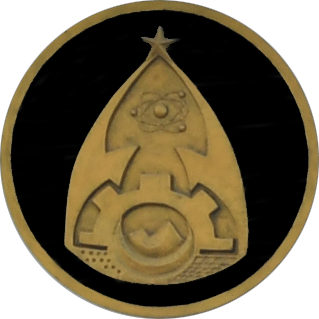
Presentation
Located about twenty kilometers east of Algiers, in the municipality of Bordj el Bahri, Military Polytechnic school enjoys the advantage offered by the immediate proximity of the capital with its important pole of educational institutions, research structures and its very diverse industrial facilities. The EMP is a multidisciplinary institution of higher education, under the dual supervision of the Ministry of National Defense and the Ministry of Higher Education and Scientific Research.L'EMP est un établissement d’enseignement supérieur pluridisciplinaire, placé sous la double tutelle du Ministère de la Défense Nationale et du Ministère chargé de l’enseignement supérieur et de la recherche scientifique.
The EMP was founded in 1995 from the reconversion of the National School of Engineers and Technicians of Algeria (ENITA), created in 1967.
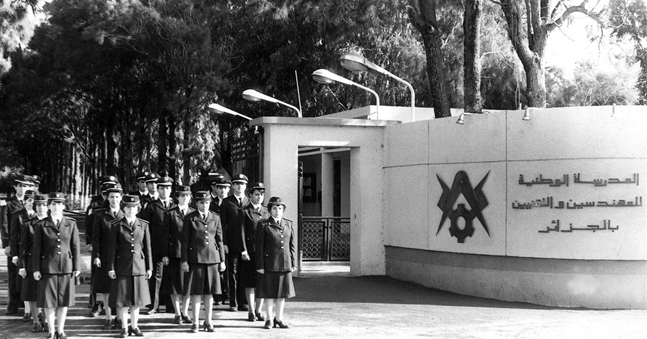
The School's mission is to train high-level executives for the benefit of the Nation. It provides graduate and post-graduateeducation in engineering sciences and techniques.
It provides graduate and post-graduateeducation in engineering sciences and techniques. In addition to its vocation as an educational institution, it also carries out, for the benefit of the various national sectors, research or scientific studies related to its field of competence.
The engineer of the Polytechnic Military School has a profile of engineer of study, design and development.His education covers a broad range of knowledge in engineering science and techniques, complemented by a significant volume in human and economic sciences, allowing him to adapt to a wide range of functions.
Graduate engineers of the School occupy multiple jobs in various professional sectors:
Although it is a military school, the EMP is fully open to the national and international academic environment. Thus, she actively participates in:
Military Training
A continuous military training supports the EMP's scientific and technical training. This training is spread over the three (03) years of training. It allows students to acquire a strong military spirit and a healthy moral education. In parallel, this training aims at developing their physical capacities in order to increase in them the endurance, risk appetite, the effort and the self confidence. This training strengthens the command ability of students by improving their communication skills, which will enable them to procure a solid foundation that prepares them to evolve in their professional career.
This training is centred on three main elements as follow:
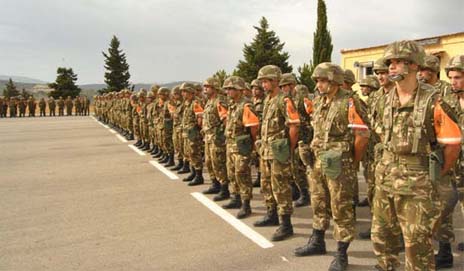
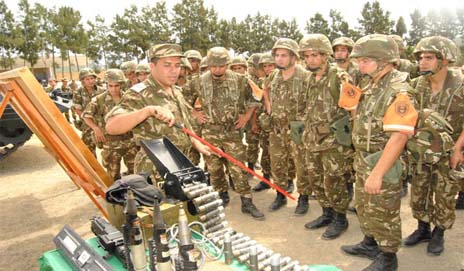
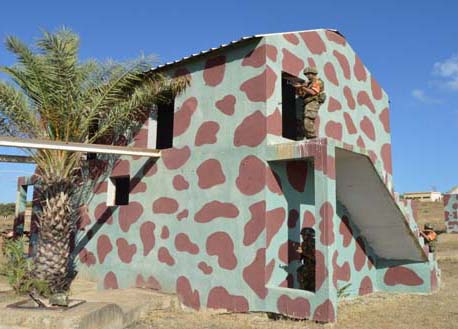
This training is centred on three main elements as follow:

General military education
It allows students to maintain the distinctive appearance and behaviour of the officer and to ensure a rich overall culture, which teaches the student to question himself and leads coherent decisions when using his knowledge in a relevant way.Physical education
It includes two parts: components sports and combat. The sporting component to develop the flexibility, the constitution and physical resistance. The physical combat training helps to enhance the endurance and the perception of action and risk.

Training in a mountainous area (Bivouac)
The last link of the military training is the training course in the mountainous areas, which completes the theoretical notions by the application of the acquired knowledge on the ground, by putting the students in a battle space, and shaking the urge to take the risk and necessary courage. Physical training is progressively improved through tactical exercises that utilize all the students' physical and moral capabilities.Graduate Education
EMP engineering education is based on a repository of evolving knowledge and know-how, taking into account scientific and technological advances. It aims to provide students with the necessary skills and competencies, allowing them to practice their engineering profession in different situations. To do this, the EMP education program is based on three major components:
Solid scientific and technical education: It constitutes the core of the education curriculum. Delivered according to a principle going from the fundamental to the applied, its objective is to provide the engineer student with methods and tools for analysis and synthesis of technological systems.
Formation in languages and human sciences: It aims at mastering languages, communication tools, methods of analyzing the various phenomena that characterize human society and the acquisition of knowledge in management and general culture, allowing future engineers the perception and understanding of the modern world.
Practical education in professional environment: Two internships in a professional environment are planned in the first and third years of course of study. They aim to introduce the student to the life within a companyand to give him a professional experience. Study visits to industrial or R&D sites are regularly scheduled during the curriculum to allow the student to have a concrete idea about the actual operation of an industrial process.
Scientific and technical education is organized in semesters of study.It is given in the form of lectures, where a large part is reserved for laboratory practical work and the realization of supervised projects,to give the students a practical know-how much appreciated in a professional environment.
The end term project is of particular importance to EMP. It is a work with strong educational value for the student-engineer. Indeed, it allows the student to progress from the knowledge assimilation stage to a mode of integration of knowledge and know-how. The aim is, among other things, to require him to do individual work requiring a bibliographic research, an application of the notions acquired during the course of study as well as the synthesis of a certain number of knowledge related to the fields of itsspecialty.
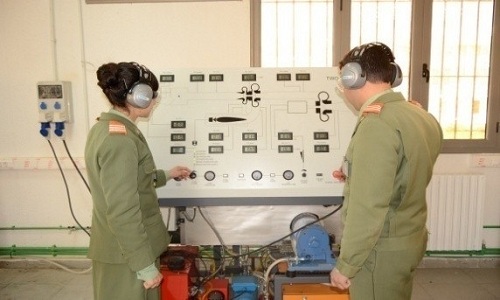
Mechanical Engineering: Aerodynamics, Propulsion, Materials Engineering, Design and Production, Solids and Structures.
Electrical Engineering: Microwaves and Radars, Telecommunications, Optoelectronic Systems, Signal Processing, Guidance Navigation and Control, Electromagnetic Actuators and DevicesPower Electronics and Electrical Drives.
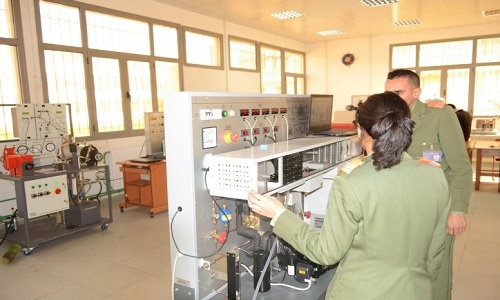
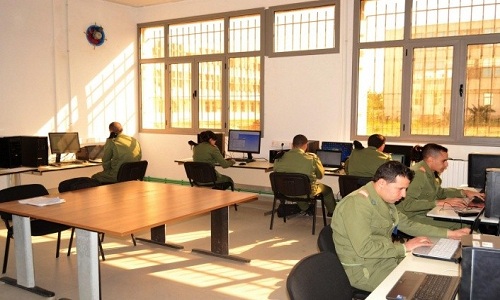
Computer Science: Computer Networks and Security, Information Systems and Decision Support.
Chemistry Engineering: Elaboration and Physico-Chemistry of Materials, Energetic Processes.
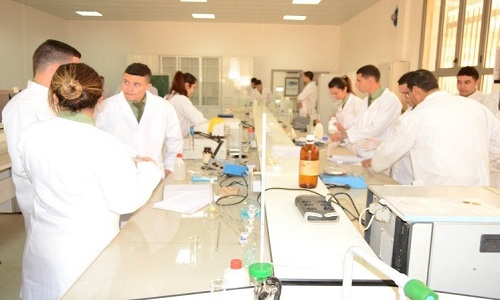
Solid scientific and technical education: It constitutes the core of the education curriculum. Delivered according to a principle going from the fundamental to the applied, its objective is to provide the engineer student with methods and tools for analysis and synthesis of technological systems.
Formation in languages and human sciences: It aims at mastering languages, communication tools, methods of analyzing the various phenomena that characterize human society and the acquisition of knowledge in management and general culture, allowing future engineers the perception and understanding of the modern world.
Practical education in professional environment: Two internships in a professional environment are planned in the first and third years of course of study. They aim to introduce the student to the life within a companyand to give him a professional experience. Study visits to industrial or R&D sites are regularly scheduled during the curriculum to allow the student to have a concrete idea about the actual operation of an industrial process.
Profile of EMP engineering education
The engineering education of the Polytechnic Military School prepares students to practice the engineering profession in all its dimensions, while privileging the profile of engineer of study, design and development.Conditions of admission to engineering education
Admission to EMP is open to students from theNational Preparatory School for Engineering Studies (ENPEI).Engineer education Curriculum
The duration of EMP engineer education is three (03) years. During the first year, students follow a core curriculum in one of the fields of their choice: Computer Engineering, Mechanical Engineering, Electrical Engineering or Chemical Engineering. The next two years are devoted to specialization courses, which culminate in the completion of anend term project.Scientific and technical education is organized in semesters of study.It is given in the form of lectures, where a large part is reserved for laboratory practical work and the realization of supervised projects,to give the students a practical know-how much appreciated in a professional environment.
The end term project is of particular importance to EMP. It is a work with strong educational value for the student-engineer. Indeed, it allows the student to progress from the knowledge assimilation stage to a mode of integration of knowledge and know-how. The aim is, among other things, to require him to do individual work requiring a bibliographic research, an application of the notions acquired during the course of study as well as the synthesis of a certain number of knowledge related to the fields of itsspecialty.
Fields of study

Mechanical Engineering: Aerodynamics, Propulsion, Materials Engineering, Design and Production, Solids and Structures.
Electrical Engineering: Microwaves and Radars, Telecommunications, Optoelectronic Systems, Signal Processing, Guidance Navigation and Control, Electromagnetic Actuators and DevicesPower Electronics and Electrical Drives.


Computer Science: Computer Networks and Security, Information Systems and Decision Support.
Chemistry Engineering: Elaboration and Physico-Chemistry of Materials, Energetic Processes.

Complementary education of Master
The School gives the opportunity to its engineering students to obtain in addition to the engineering degree, a master's degree in the same specialty, following, in parallel with the engineering curriculum, a 200 hoursadditional course of study, like other national engineering schools.Sanction of studies
The cycle of graduate education is sanctioned at the end of the curriculum by obtaining anengineer diploma and a Master's degree in the same specialty after presentation before a jury of a memory of end-term engineering studies and a Master's thesis.Postgraduate Education
Military polytechnic school, Chahid TALEB abderahmane, offers two types of doctor degree:
Mechanical engineering ;
Electrical engineering ;
Chemistry ;
Computer science (IT)
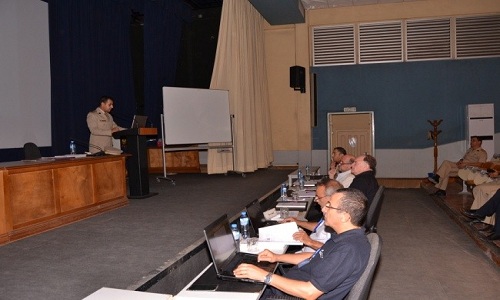
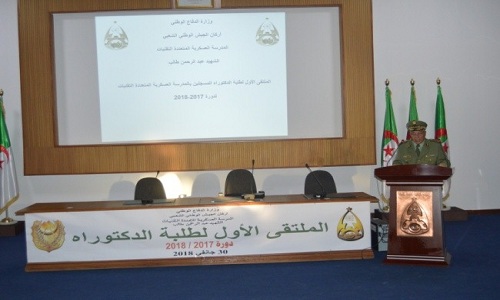
Computer science (IT) :decision support systems, network and computer systems, cyber security.
Mechanical Engineering :fluids and energetic, material science, construction, mechanical design and manufacture.
Electronic:telecommunication and high frequency systems, optoelectronic, signal processing.
Electrotechnic:electromagnetic systems, power electronics, control systems.
Chemistry :physico-chemistry of materials, energetic processes, elaboration of materials.
Handwritten request to participate in the national competitive exam;
Curriculum vitae;
Copy a birth certificate;
Two (02) photos;
Copy of baccalaureate (high school diploma);
Copy of the academic transcript for bachelor and or engineering and master degree;
Copy of the descriptive document attached to the master's degree;
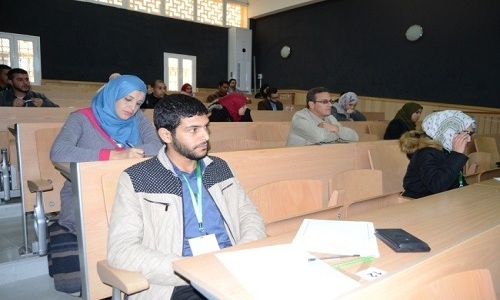
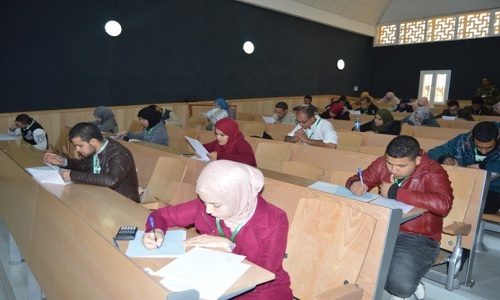
Process engineering ;
Automatic ;
Electrotechnic ;
Electronic ;
Mechanical engineering ;
Computer science (IT).
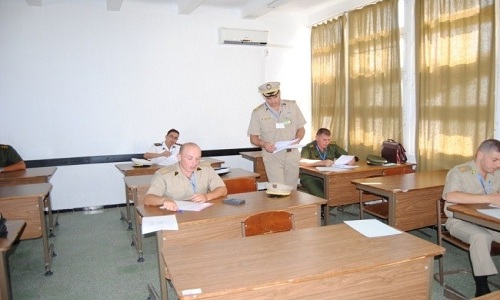
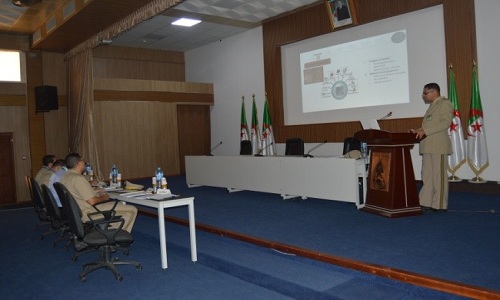
1- Traditional classical system doctor degree:
This type of program is offered after evaluation of a candidate file. It requires a classical master degree (magister) or its equivalent from a foreign country in the following majors:

2- Doctor degree of the 3rd cycle (Bachelor, Master, Doctorate):
For this program, the candidates will be selected based on a national competitive exam and is offered to holders of a master's degree or another equivalent foreign diploma in the following majors:2.1- Application form:


2.2- Complementary master's degree courses :
It should be notice that the military polytechnic school offers also a complementary master's degree course allowing the transition from the traditional system to the (bachelor, master, doctor) system. This program is exclusively offered to officers holding engineering degree in the following majors:





